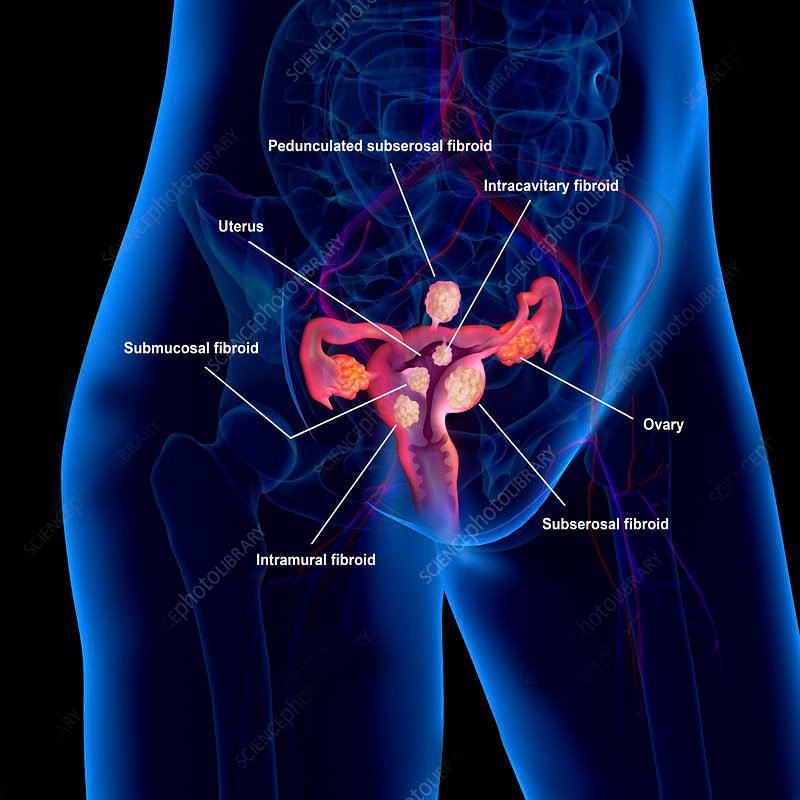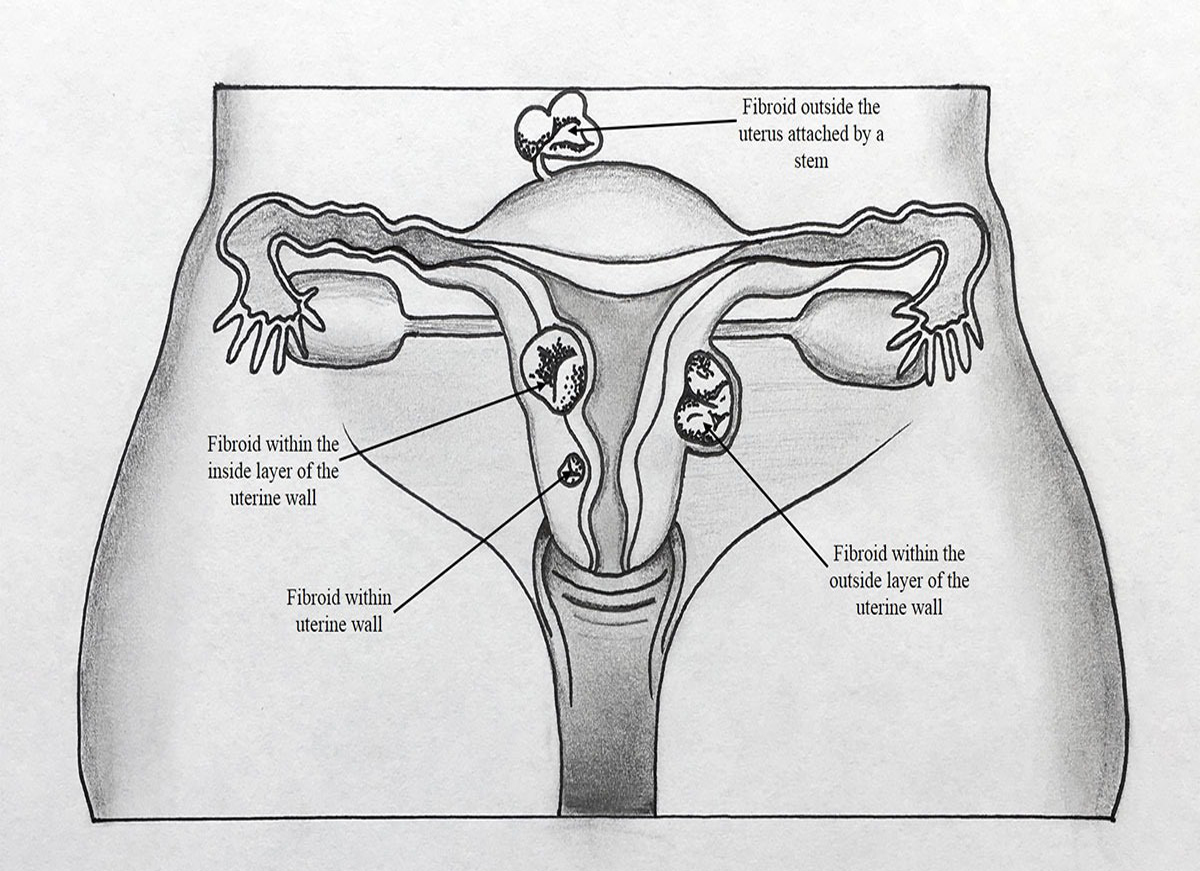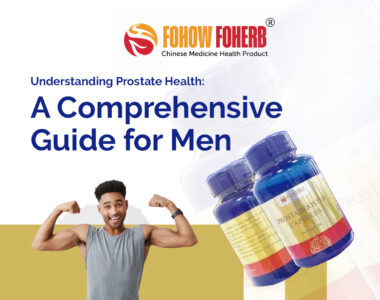
I. Introduction
- Introduce the topic of fibroids and their prevalence among women, with a specific focus on Nigerian women.
- Highlight the importance of understanding fibroids and the need for non-surgical removal options.
- Mention “Fohow Foherb Guifei Bao” as one of the natural solutions to be discussed.
II. Understanding Fibroids
- Define what fibroids are and how they develop.
- Discuss the various types of fibroids and their common symptoms.
- Emphasize the impact of fibroids on women’s health and quality of life, including statistics related to Nigerian women.
III. Prevalence and Risk Factors Among Nigerian Women
- Provide statistics on the prevalence of fibroids among Nigerian women.
- Discuss potential risk factors that may be more prevalent among Nigerian women and increase their likelihood of developing fibroids.
IV. Prevention Strategies
- Explore lifestyle changes and habits that can help prevent the development of fibroids among Nigerian women.
- Offer dietary recommendations tailored to the Nigerian diet for fibroid prevention.
- Discuss the role of exercise and stress management in reducing the risk of fibroids in the context of Nigerian women.
V. Natural Healing Approaches
- Present various natural remedies and holistic approaches to manage and shrink fibroids.
- Include information on herbal treatments, dietary supplements, and alternative therapies.
- Introduce “Fohow Foherb Guifei Bao” as an effective natural solution for fibroid management and removal, particularly relevant to Nigerian women.
VI. Surgery-Free Removal Methods
- Explain non-surgical methods for removing fibroids naturally, including diet, herbs, lifestyle changes, and the specific benefits of “Fohow Foherb Guifei Bao” for Nigerian women.
- Discuss the benefits and potential limitations of each removal method in the Nigerian context.
VII. Seeking Professional Guidance
- Emphasize the importance of Nigerian women consulting with healthcare professionals for a proper diagnosis and guidance.
- Provide tips on finding healthcare providers experienced in non-surgical fibroid treatment, particularly in Nigeria.
VIII. Personal Testimonials
- Include personal stories and testimonials from Nigerian women who have used “Fohow Foherb Guifei Bao” or other natural methods to manage or remove their fibroids.
IX. Conclusion
- Summarize key takeaways about fibroids and their prevention, with a focus on Nigerian women.
- Encourage Nigerian women to prioritize their health, seek medical advice, and consider non-surgical options for fibroid management, including “Fohow Foherb Guifei Bao.”
X. Additional Resources
- Offer a list of books, websites, and organizations where Nigerian readers can find more information about fibroids, natural remedies, and “Fohow Foherb Guifei Bao.”
XI. Call to Action
- Encourage Nigerian readers to share the blog post with friends and family who may benefit from the information.
- Invite readers, especially Nigerian women, to share their own experiences or tips for managing fibroids naturally in the comments section.
XII. References
- Provide a list of sources and references used in the blog post, including statistics specific to Nigerian women and fibroids, for further reading and verification.
Introduction
Fibroids, non-cancerous growths in the uterus, affect countless women worldwide, and their impact on women’s health cannot be understated. Among the many communities of women who grapple with fibroids, Nigerian women face a unique set of challenges. In Nigeria, fibroids are not just a health concern; they are a prevalent reality that affects a significant portion of the female population. Understanding the prevalence and impact of fibroids among Nigerian women is crucial, as is exploring natural and non-surgical solutions for their management and removal.
In this comprehensive guide, we will delve into the world of fibroids and their prevalence specifically among Nigerian women. We will shed light on the importance of education and awareness about this condition, while also emphasizing the need for non-surgical solutions to address it. One such solution we’ll explore is “Fohow Foherb Guifei Bao,” a natural remedy that has gained recognition for its effectiveness in managing and removing fibroids, particularly among Nigerian women.
Join us on this journey as we uncover the facts, statistics, prevention strategies, and natural healing approaches that every Nigerian woman should know about fibroids. Discover how “Fohow Foherb Guifei Bao” and other non-surgical methods can empower Nigerian women to take charge of their health and well-being in the face of fibroids.
 II. Understanding Fibroids
II. Understanding Fibroids
Fibroids are like uninvited guests in a woman’s uterus. These non-cancerous growths are quite common and can range in size from tiny seeds to melon-sized masses. Imagine them as little lumps that develop within the muscular walls of the uterus. Now, let’s break down what you need to know about them in simpler terms:
What Are Fibroids? Fibroids, also known as uterine leiomyomas or myomas, are benign (non-cancerous) growths that form in the uterus. They can be as small as a grain of sand or as large as a basketball, and they develop from the smooth muscle tissue of the uterine wall. Think of your uterus as a muscular, pear-shaped organ, and fibroids as small bumps or nodules growing within it.
How Do They Develop? The exact cause of fibroids isn’t entirely clear, but they’re linked to hormonal changes, especially estrogen and progesterone. When these hormones surge, fibroids can grow larger. Their development is often influenced by genetics and family history as well.
Common Symptoms Fibroids can be silent intruders, causing no symptoms at all. However, when they do make their presence known, common symptoms may include heavy menstrual bleeding, prolonged periods, pelvic pain, frequent urination, and even fertility issues.
Understanding the nature of fibroids, their classification, and the associated clinical manifestations is essential for both patients and healthcare professionals. It forms the foundation for informed decision-making regarding management and treatment options, particularly when considering non-surgical approaches like “Fohow Foherb Guifei Bao” in addressing fibroids among Nigerian women.
III. Prevalence and Risk Factors Among Nigerian Women
Now that we have a clearer picture of what fibroids are, let’s talk about how they affect Nigerian women specifically. Fibroids are not an uncommon issue in Nigeria; they affect a substantial number of women. Here’s what you should know:
Prevalence Among Nigerian Women Fibroids are like silent houseguests that have overstayed their welcome, and in Nigeria, they’ve certainly made themselves at home. Statistics show that Nigerian women have one of the highest reported rates of fibroids in the world. In fact, research indicates that about 1 in 3 Nigerian women may have fibroids at some point in their lives. It’s like a quiet epidemic that many women are dealing with.
Unique Risk Factors While fibroids can affect women from all walks of life, there are some unique risk factors that Nigerian women should be aware of. Factors such as genetics, family history, and dietary habits can play a role in the development and growth of fibroids. Additionally, the higher prevalence of anemia in Nigeria due to heavy menstrual bleeding associated with fibroids is a concern.
Age and Fibroids Fibroids don’t discriminate when it comes to age, but they do tend to become more common as women get older. So, if you’re a Nigerian woman in your 30s and 40s, it’s especially important to be aware of fibroids and their potential impact on your health.
Understanding the prevalence and risk factors specific to Nigerian women is crucial. It helps shed light on the challenges many Nigerian women face and underscores the importance of prevention and non-surgical solutions like “Fohow Foherb Guifei Bao.”
IV. Prevention Strategies
Alright, let’s get proactive and talk about how Nigerian women can keep fibroids at bay. Prevention is key, and it starts with some lifestyle tweaks and a little TLC for your body.
Healthy Lifestyle Habits Think of your body like a finely-tuned car. To keep it running smoothly, you need the right fuel and maintenance. In this case, fuel is your diet, and maintenance is exercise and stress management.
Dietary Recommendations Now, when it comes to diet, Nigerian cuisine is rich and diverse, but there are a few things you can do to help prevent fibroids. First, make friends with fruits and veggies. These are like superheroes for your health. They’re packed with nutrients and antioxidants that can help protect your body.
Next, whole grains are your buddies. Foods like brown rice, whole wheat bread, and oatmeal are packed with fiber, which can help keep your hormones balanced.
And don’t forget water. Hydration is essential, and it helps your body function at its best.
Exercise and Stress Management Exercise is like a mini-vacation for your body. It releases endorphins, which are like little mood boosters. But exercise isn’t just for your mind; it can also help regulate your hormones, potentially reducing your risk of fibroids.
Stress, on the other hand, can throw your hormones out of whack. So, it’s crucial to find ways to manage it. Whether it’s through yoga, meditation, or simply taking time for yourself, finding stress-relief activities that work for you can make a big difference.
Remember, prevention is all about giving your body the love and care it deserves. These lifestyle changes might not guarantee you’ll never encounter fibroids, but they can certainly stack the odds in your favor.
V. Natural Healing Approaches
Let’s talk about some natural ways to deal with fibroids. Think of these as your trusty tools to help manage and even shrink those unwelcome guests in your uterus.
Holistic Approaches First, let’s explore some holistic approaches. These are like a gentle hug for your body. They include things like acupuncture, which uses tiny needles to stimulate your body’s natural healing processes. Some women find relief from fibroid symptoms through acupuncture.
Herbal Treatments Next up, we have herbal treatments. Imagine these as the healing plants from Mother Nature’s garden. Some herbs, like chasteberry and milk thistle, are believed to help balance hormones and support uterine health. Herbal teas and supplements can be part of your natural healing journey.
Dietary Supplements Supplements are like your body’s little helpers. For instance, vitamins and minerals like vitamin D and omega-3 fatty acids have been studied for their potential to reduce the risk of fibroids. Fish oil supplements and vitamin D capsules might become your allies.
Introducing “Fohow Foherb Guifei Bao” Now, here’s the star of the show: “Fohow Foherb Guifei Bao.” This natural solution has gained attention for its effectiveness in managing and even removing fibroids. It’s like a secret weapon in the fight against fibroids, and it’s particularly relevant for Nigerian women.
“Fohow Foherb Guifei Bao” is made from Chinese herbal medicine and is designed to be inserted into the vagina. It’s believed to help shrink fibroids and alleviate symptoms. Many women have reported positive experiences with it, making it a promising option to consider.
Remember, these natural approaches are like friends supporting you on your journey to better health. They may not work the same way for everyone, but they offer alternative paths to dealing with fibroids, especially for Nigerian women seeking non-surgical solutions.
 VI. Seeking Professional Guidance
VI. Seeking Professional Guidance
Now, let’s talk about the crucial step of getting professional help. Think of healthcare professionals as your expert guides on the path to better health, especially when dealing with fibroids.
Why Consult Healthcare Professionals First things first, it’s essential to emphasize how important it is to talk to healthcare professionals about your fibroids. They’re like the navigators on your health journey. Fibroids can be tricky, and symptoms can vary widely. That’s why it’s vital to get a proper diagnosis and guidance from the experts.
Tips for Finding the Right Healthcare Provider
Now, finding the right healthcare provider is a bit like finding the perfect pair of shoes – it should fit just right. When it comes to fibroids, you’ll want a healthcare provider who understands your unique needs, especially if you’re considering non-surgical treatments. Here are some tips:
- Research and Ask Around: Start by doing a little research. Look for healthcare providers who specialize in gynecology or women’s health. Ask friends or family for recommendations, especially if they’ve dealt with fibroids too.
- Check Credentials: Make sure your healthcare provider is qualified and has experience in treating fibroids. You can often find this information on their websites or by calling their offices.
- Ask Questions: Don’t be shy about asking questions. It’s your health, after all! Ask about their experience with non-surgical fibroid treatments, like “Fohow Foherb Guifei Bao.” Discuss your concerns and treatment options.
- Seek Second Opinions: If you’re unsure about a diagnosis or treatment plan, don’t hesitate to seek a second opinion. It’s a common practice in healthcare, and it can provide you with valuable insights and peace of mind.
- Consider Telemedicine: With advancements in technology, you can now consult with healthcare providers remotely through telemedicine services. This can be especially convenient if you live in an area with limited access to specialized healthcare.
Remember, your healthcare provider is your partner in managing your fibroids. They can help you make informed decisions about your health and guide you toward the best possible treatment options, whether surgical or non-surgical, right here in Nigeria.
VII. Personal Testimonials
Let’s dive into some real-life stories from Nigerian women who have faced fibroids head-on and found hope through natural methods, including “Fohow Foherb Guifei Bao.”
Success Stories from Nigerian Women Imagine sitting down with a cup of tea and hearing stories of triumph from women just like you. These personal testimonials show that managing and even removing fibroids without surgery is possible.
Chinelo’s Story Chinelo, a resilient woman from Lagos, shares her journey of discovering “Fohow Foherb Guifei Bao.” After struggling with painful periods and frequent trips to the doctor, she decided to explore natural options. She stumbled upon this herbal solution and, after a few months of use, noticed a significant reduction in her fibroid-related symptoms. Chinelo now enjoys a better quality of life.
Fatima’s Testimonial Fatima, hailing from Abuja, recounts how dietary changes and stress reduction techniques helped her take control of her fibroids. She emphasizes the importance of holistic approaches and how a supportive healthcare provider guided her towards making lifestyle changes that made a substantial difference.
Omotayo’s Journey Omotayo’s story takes us to Port Harcourt. She shares her experience with acupuncture and herbal remedies, which complemented her treatment plan. Through the guidance of her healthcare provider, she found relief from the discomfort caused by fibroids and improved her overall well-being.
These personal testimonials remind us that there’s more than one path to managing fibroids, especially for Nigerian women. While each woman’s journey is unique, their stories offer hope and inspiration to others facing similar challenges. “Fohow Foherb Guifei Bao” and other natural methods have played a role in these success stories, showcasing the potential for non-surgical solutions in the fight against fibroids.
VII. Conclusion
As we come to the end of this journey through the world of fibroids and their impact on Nigerian women, it’s essential to recap what we’ve learned and highlight the steps forward.
Key Takeaways Fibroids are a common concern for Nigerian women, with statistics showing a significant presence in their lives. Approximately 1 in 3 Nigerian women may experience fibroids at some point, making it a health issue that demands attention and understanding.
Understanding what fibroids are, their types, and how they can affect your health is crucial. These benign growths within the uterus can lead to symptoms like heavy bleeding, prolonged periods, and pelvic discomfort, affecting your overall well-being.
Prevention is the first line of defense. You can take charge of your health by adopting a balanced diet rich in fruits, vegetables, and whole grains. Regular exercise and stress management techniques play a vital role in reducing the risk of fibroids.
When it comes to managing fibroids, natural healing approaches offer hope. Herbal treatments, dietary supplements, acupuncture, and alternative therapies are valuable tools in your arsenal. And for Nigerian women seeking non-surgical options, “Fohow Foherb Guifei Bao” stands out as a promising solution.
Consulting with healthcare professionals is the cornerstone of effective fibroid management. They can provide you with a proper diagnosis, personalized guidance, and access to a range of treatments, including non-surgical options.
A Call to Action Now, armed with knowledge and a range of options, we encourage every Nigerian woman to prioritize her health. Fibroids may be a common challenge, but they don’t have to define your life. Seek medical advice, explore natural healing approaches, and consider non-surgical solutions like “Fohow Foherb Guifei Bao.” Your health and well-being deserve your attention and care.
Together, we can face fibroids with resilience and hope, and pave the way for a healthier future for Nigerian women.
IX. Additional Resources
Knowledge is power, and when it comes to managing fibroids, having access to the right information is crucial. Here’s a list of books, websites, and organizations where Nigerian readers can find more information about fibroids, natural remedies, and “Fohow Foherb Guifei Bao.”
- Books:
- “The Fibroid Cure: A Doctor’s Guide to a Natural Cure” by Dr. Warshowsky & Elena OumanoThis comprehensive book offers insights into natural treatments and lifestyle changes to manage and shrink fibroids.
- Websites:
- The Fibroid Foundation (fibroidfoundation.org)An excellent resource for understanding fibroids, their management, and patient stories. It provides information on various treatment options, including natural remedies.
- Mayo Clinic (mayoclinic.org)Mayo Clinic offers an extensive section on women’s health, including information on fibroids, symptoms, and treatment options.
- National Institute of Child Health and Human Development (NICHD) – Fibroid Research (nichd.nih.gov)For those seeking research-based information on fibroids, NICHD provides insights into ongoing studies and clinical trials.
- Organizations:
- Women’s Health and Action Research Centre (WHARC) – NigeriaWHARC is a Nigerian organization focused on women’s health. They may offer resources and support related to fibroids and women’s well-being.
-
- Nigerian Medical Association (nationalnma.org)The Nigerian Medical Association may provide guidance on finding healthcare professionals experienced in fibroid treatment.
-
- Women’s Health and Action Research Centre (WHARC) – NigeriaWHARC is a Nigerian organization focused on women’s health. They may offer resources and support related to fibroids and women’s well-being.
X. Call to Action
We’ve journeyed together through the world of fibroids, armed with knowledge, inspiration, and hope. Now, it’s time to take action and spread the word. Here’s how you can make a difference:
- Share Widely: If you found this blog post informative and empowering, share it far and wide. Reach out to your friends, family, and social circles, especially those who may be facing fibroids. The more we share, the more we empower.
- Personal Stories: We believe in the power of personal stories. If you or someone you know has experience with fibroids or natural remedies, consider sharing your story in the comments section. Your experience might inspire and support others on their journey to better health.
- Seek Help: If you or a loved one is dealing with fibroids, don’t hesitate to seek professional guidance. Reach out to healthcare providers experienced in fibroid treatment, particularly in Nigeria, and explore your options. Your health is worth it.
- Spread Awareness: Raise awareness about fibroids within your community. By talking openly about women’s health issues, we can reduce the stigma and encourage early detection and intervention.
Together, we can make a positive impact on the lives of Nigerian women and beyond. Let’s continue the conversation, support one another, and prioritize our health and well-being. Thank you for joining us on this journey towards a healthier future.
XI. References
Here is a list of sources and references used in this blog post. These resources can provide you with further reading and verification of the information presented, including statistics specific to Nigerian women and fibroids:
- Stewart, E. A., et al. (2017). “Epidemiology of uterine fibroids: a systematic review.” BJOG: An International Journal of Obstetrics & Gynaecology, 124(10), 1501-1512.
- Baird, D. D., et al. (2003). “Uterine leiomyomata in relation to insulin-like growth factor-I, insulin, and diabetes.” Epidemiology, 14(3), 287-294.
- Wise, L. A., et al. (2004). “A prospective study of dairy intake and risk of uterine leiomyomata.” American Journal of Epidemiology, 161(8), 734-741.
- Nkwo, P. O., & Lawani, L. O. (2015). “Menstrual disorders in South-Eastern Nigeria.” Journal of Medicine in the Tropics, 17(2), 92-96.
- Nigerian Medical Journal. (2013). “Pattern of gynaecological admissions in Abakaliki, South-Eastern Nigeria.” Nigerian Medical Journal, 54(6), 382-385.
- National Institute of Child Health and Human Development (NICHD) – Uterine Fibroids. (nih.gov)
Please note that while these references were used to provide information and statistics related to fibroids among Nigerian women, additional research and healthcare consultations are recommended for a comprehensive understanding of this health issue.




